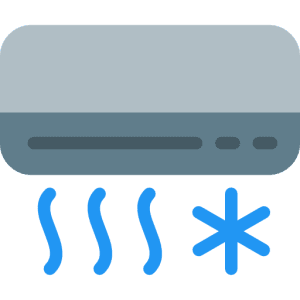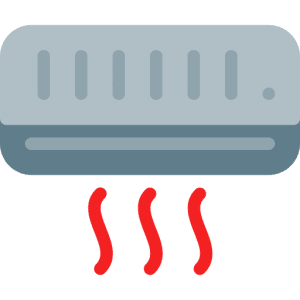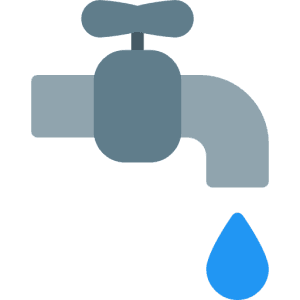Leaking Water Heater? Common Causes & How to Respond
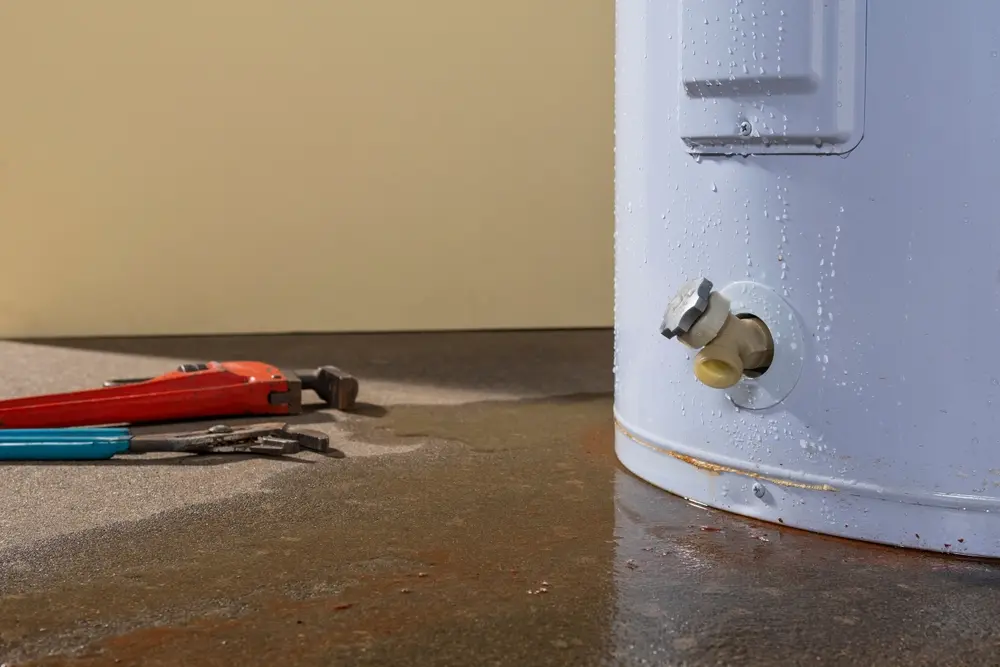
If you find a puddle of water under your water heater, it’s a sign of a leaky system. There can be a number of reasons why your water heater is leaking, including water damage, maintenance, or water usage. Understanding these issues can help prevent costly repairs in the future. This article will offer some tips so you can effectively manage your water heater and prevent future issues.
The plumbing experts at LimRic are standing by to help, whether you need a minor fix or you are experiencing a plumbing emergency. We offer a range of water heater services, maintenance and repair to replacements and installation, all to ensure that you and your family can enjoy hot water when you need it.

Our highly-trained and professional technicians are ready to help!
Why Is My Water Heater Leaking? 8 Reasons for Hot Water Leaks
Your water heater is an important appliance for your household. It provides hot water for all of your daily needs. However, leaks can occur due to wear and tear or faulty components. Identifying and fixing these issues can help maintain its functionality and minimize future water heater leaks.
1. Old Tank
Water heaters age due to deterioration and rust, often due to frequent cooling or heating cycles. If your system is over ten years old, it may be time to replace it.
2. Drain Valve is Loose
Regularly inspecting and closing the drain valve during routine maintenance or tank water replacement can prevent leaks in your water heater. If not closed properly, this can lead to water damage.
3. Worn Temperature and Pressure Valve
The temperature and pressure release valve is crucial for maintaining water tank safety, but wear or breakage can cause leaks. Regular inspections and repairs ensure system efficiency.
4. High Water Pressure
Water heaters operate within a specified pressure range, so high water pressure requires more effort from the tank and its components. Check home settings and consider installing a pressure-reducing valve.
5. Tank is Cracked
Cracks in a water heater tank, due to manufacturing flaws or physical damage, can worsen over time due to heating cycles. This may lead to leaks that require replacement.
6. Hard Water
If you live in a region with hard water, high magnesium and calcium levels can accumulate sediment in tanks and cause water heaters to work harder. This leads to overheating and tank damage. Regular tank draining can help reduce this buildup.
7. Check Inlet/Outlet Connections
To detect leaks in your water heater, regularly inspect and tighten the inlet and outlet connections. You should replace any rusted pieces and tighten the connections if necessary.
8. Anode Rod is Worn
The anode rod is designed to protect the water heater tank from corrosion. It should be checked and repaired when necessary to prevent rust and leakage while also extending the lifespan of the system.
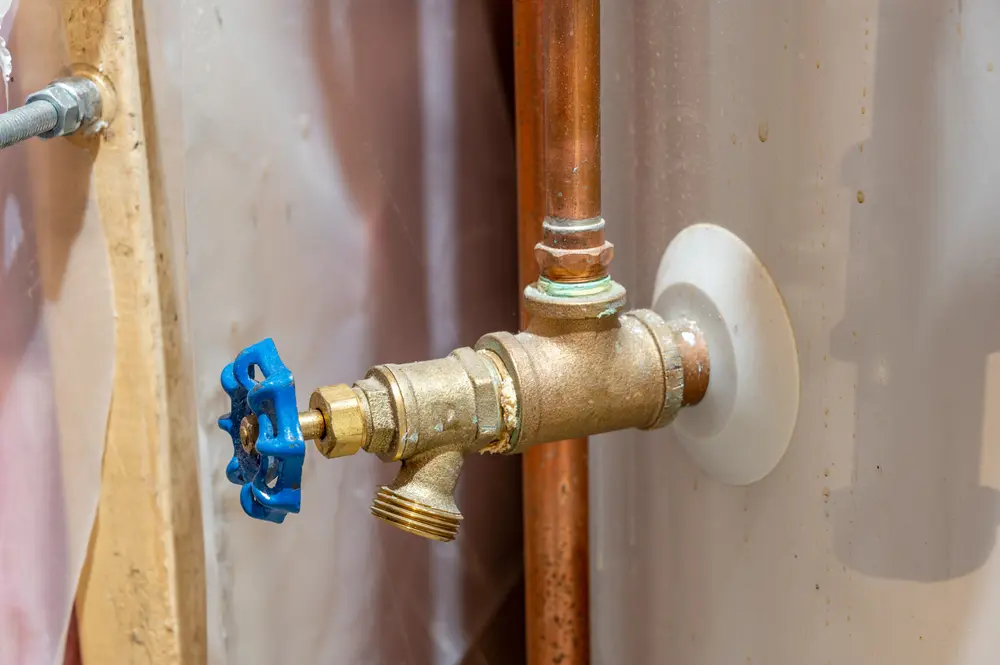
How to Address Bottom, Top, & Internal Leaks
Water Heater is Leaking from the Bottom
If your water heater is leaking from the bottom, it might be caused by the tank or drain valve. Tightening drain valves is usually enough. However, if the tank itself has a leak, the entire unit needs to be replaced. This is a costly but necessary action.
Water Heater is Leaking from the Top
There could be a number of reasons that your water heater is leaking from the top. Some of the common issues are faulty inlet and outflow connections, corroded anode rods, and loose temperature and pressure valves. Most homeowners can fix these leaks by repairing, replacing, or tightening components, and only cracks necessitate a new water heater.
Internal Leaks
Water heater leaks are impossible to see from the outside. If the bottom of your unit is frequently collecting water, it may suggest there is an internal tank crack. The main causes of these types of leaks are an aging tank and wear over time.
Condensation
Before calling a plumber, make sure the water you see is condensation or a leak. Condensation occurs when the room temperature significantly deviates from the tank temperature, such as when the tank is hot but the room is cold. Just because you have some condensation on your tank does not necessarily mean your water heater is having issues.
Tips to Prevent Costly Water Heater Repairs & Replacements
- Inspect the water heater. Homeowners need to check their water heaters in addition to performing routine maintenance. Check for cracks, see if any parts are loose, and deal with any silt accumulation you discover. It is imperative for homeowners to monitor their water heaters in order to detect any problems or failures.
- Drain the tank. A clean water heater tank is less prone to cracking due to sediment buildup. Homeowners can clean the tank themselves. Use the drain valve to drain the water, then use a bleach-water solution to remove any mold or mildew growth. This not only improves water quality, but it also prevents silt collection from damaging the tank.
- Tighten any loose parts. The normal wear and tear of fittings and connectors might cause parts to loosen over time. Verify and tighten the drain, temperature and pressure valves, outlet, and inlet connections.
- Schedule regular maintenance. A plumber’s routine maintenance guarantees that there are no leaks in the water heater. Plumbers can examine the complete plumbing system during maintenance checks, which includes the water heater. In addition to making sure there are no present leaks, they closely inspect every component to determine whether it has the potential to leak.

Contact LimRic for Emergency Hot Water Heater Repair & Replacement Services in Charleston, SC
Your leaking water heater could require a simple repair or replacement of the unit. If you notice a problem, call the expert plumbers at LimRic. We provide installation, repair, replacement, and maintenance services for tanked water heaters and tankless water heaters. Ignoring the problem can result in hot water flooding that poses a risk to your home and safety.
Don’t hesitate any longer. We serve residents of Charleston, Summerville, Goose Creek, Mount Pleasant, and other surrounding areas. Contact us now to schedule a water heater service.
- About Us (11)
- AC (13)
- Air Quality (10)
- Circuit Breakers (2)
- Commercial (0)
- Company News (5)
- Electrical (3)
- Electrical Repair (1)
- Energy-Efficient (4)
- Featured (0)
- Furnace (3)
- Generator Repair (1)
- Generators (1)
- Give Back Grant (3)
- Heat Pumps (1)
- Heating (6)
- HVAC (26)
- Plumbing (27)
- Residential (10)
- Thermostat (3)
- Uncategorized (52)
- Water Heater (4)
- Winter (5)









